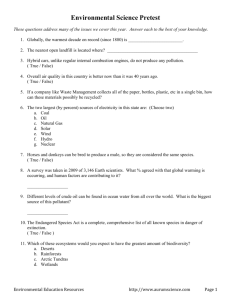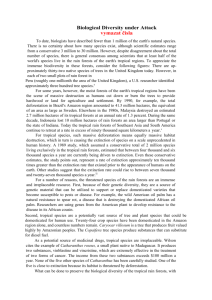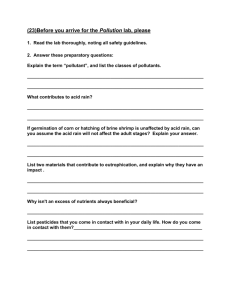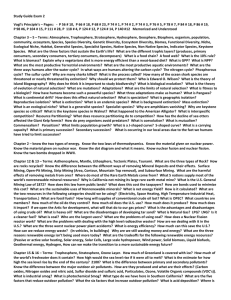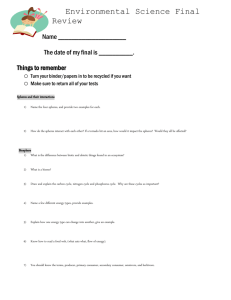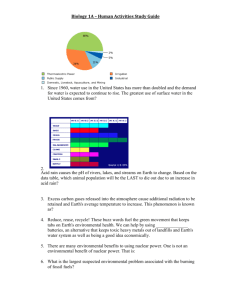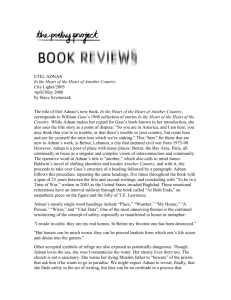six billion and counting - happywritingbee-D
advertisement
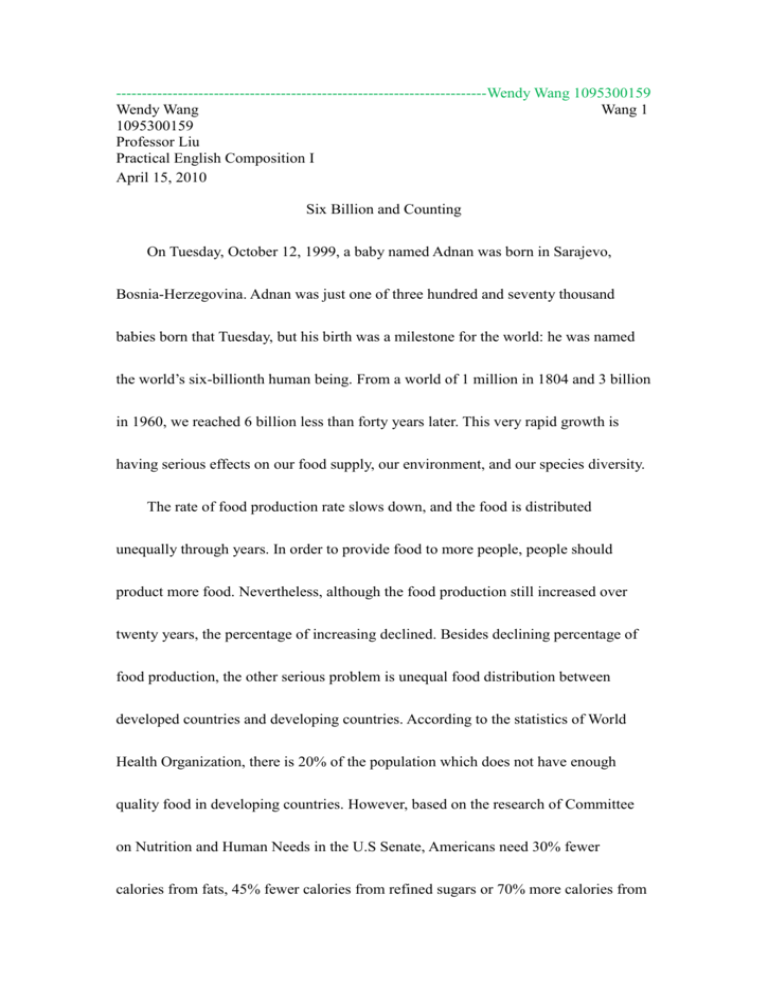
------------------------------------------------------------------------Wendy Wang 1095300159 Wendy Wang Wang 1 1095300159 Professor Liu Practical English Composition I April 15, 2010 Six Billion and Counting On Tuesday, October 12, 1999, a baby named Adnan was born in Sarajevo, Bosnia-Herzegovina. Adnan was just one of three hundred and seventy thousand babies born that Tuesday, but his birth was a milestone for the world: he was named the world’s six-billionth human being. From a world of 1 million in 1804 and 3 billion in 1960, we reached 6 billion less than forty years later. This very rapid growth is having serious effects on our food supply, our environment, and our species diversity. The rate of food production rate slows down, and the food is distributed unequally through years. In order to provide food to more people, people should product more food. Nevertheless, although the food production still increased over twenty years, the percentage of increasing declined. Besides declining percentage of food production, the other serious problem is unequal food distribution between developed countries and developing countries. According to the statistics of World Health Organization, there is 20% of the population which does not have enough quality food in developing countries. However, based on the research of Committee on Nutrition and Human Needs in the U.S Senate, Americans need 30% fewer calories from fats, 45% fewer calories from refined sugars or 70% more calories from Wang 2 complex carbohydrates. As result of rapid population growing, unequal food distribution and less food production become serious problems. In order to provide human beings a more convenient life, people consume more energy. Therefore, more nuclear power plants are built, which caused serious nuclear pollution. Take commercial energy consumption as an example. From the table of annual world commercial energy consumption, we can see that the percentage of consumption in United States and Europe is nearly 50% of the total world consumption. The energy consumption of developed countries is far more than of developing countries. What’s more, the problem that excess energy consumption brings about is nuclear pollution. For example, the Chernobyl nuclear power plant accident happened in 1986. It caused a serious radioactive pollution to a large part of Europe and about one hundred and thirty-five thousand people had to evacuate. The further problem related to the accident is “explosive increase” in childhood cancer in the Ukraine and in Russia. Overpopulation cause more energy consumption, and it brings about nuclear pollution indirectly. Due to the needs of increasing population, rain forests are decreasing rapidly, and it causes species extinction at the same time. Most of the rain forests have been deforested in order to grow the crop with economic benefits. Upon the investigation, Wang 3 they are destroyed about one hundred thousand square kilometers every year. Moreover, less than 2% of the Atlantic coastal rain forests of Brazil remain today. On the other hand, because of population, human beings deprive of the living space of other animals. Therefore, species extinction becomes more serious recently. According to the statistics, the number of extinct species rises continually in the last three centuries. For instance, there were fifty thousand to eighty thousand tigers in India alone in 1990 while there are fewer than five thousand tigers worldwide. Overpopulation brings not only the damage of the rain forests but also species extinction. Population is growing rapidly, and it causes many serious problems at the same time. Even worse, there will be another six billion people in the future. Those problems which are mentioned above will be more serious, and we need more resource, food, and living space. People will run out of both food and resource one day. After that, human beings may also become the extinct species. Therefore, human population control is top priority for human beings. -------------------------------------------------------------------------------------------------------
